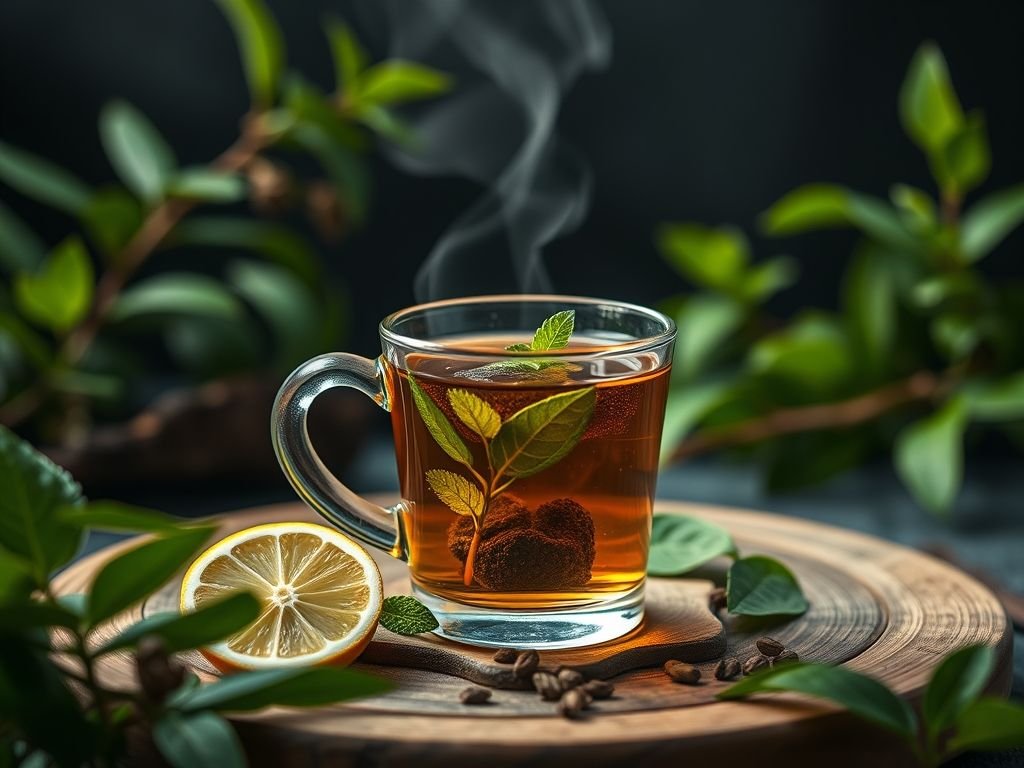Understanding Tea for Hangovers
Tea for hangovers refers to herbal or natural tea blends specifically formulated to alleviate the unpleasant symptoms associated with overindulgence in alcohol. These symptoms often include headache, nausea, fatigue, and dehydration. Utilizing the natural properties of various herbs and teas, individuals can find relief and support their body’s recovery process.
Why Use Tea for Hangovers?
Hangovers result from the body’s reaction to alcohol consumption, leading to dehydration and an imbalance of electrolytes. Tea can be a beneficial remedy due to its hydrating properties and the presence of antioxidants and other compounds that can support liver function and ease digestive distress. Additionally, the warm nature of tea can be soothing, making it a comforting choice when feeling unwell.
1. Hydration and Electrolyte Balance
One of the primary reasons tea helps with hangovers is its ability to rehydrate the body. Herbal teas, such as ginger or peppermint, not only provide hydration but also help soothe the stomach. For example, ginger tea is known for its anti-nausea properties, making it an excellent choice for combating queasiness.
- Example: Ginger tea can be made by steeping fresh ginger slices in hot water for about 10 minutes. Add honey for sweetness if desired.
2. Antioxidants and Liver Support
Many herbal teas contain antioxidants that can support liver health. Green tea, for instance, is rich in catechins, which have been shown to promote liver function and reduce inflammation. Drinking green tea after a night of drinking can potentially aid in flushing out toxins and speeding up recovery.
- Example: Brew green tea and add lemon juice for added vitamin C, which can also help the liver function better.
3. Soothing Natural Ingredients
Several herbs commonly found in teas have soothing properties that can help reduce headache and muscle tension. Chamomile tea is particularly effective due to its anti-inflammatory effects and ability to induce relaxation. This can be especially beneficial for those who experience anxiety or stress related to hangovers.
- Example: Brew chamomile tea using dried flowers and enjoy before bed to help ease tension and promote restful sleep.
4. Practical Recipes for Hangover Tea
Creating your own tea blends can be both enjoyable and effective. Here are a couple of simple recipes:
- Ginger-Lemon Tea: Combine 1 tbsp of grated ginger, juice of half a lemon, and 2 cups of hot water. Steep for 10 minutes and strain.
- Mint and Green Tea: Brew 1 green tea bag with a handful of fresh mint leaves in hot water. Allow it to steep for 5 minutes before enjoying.
How to Use Tea for Hangovers in Daily Life
Incorporating tea as a remedy for hangovers can be easy. Here are some practical tips:
- Keep a variety of herbal teas on hand to choose from based on your symptoms.
- Prepare a big batch of your favorite tea and store it in the fridge for quick access when needed.
- Pair your tea with light snacks, such as crackers or toast, to help settle your stomach.
Related Concepts in Natural Health
Understanding tea for hangovers can be enhanced by exploring other related natural remedies, such as:
- Herbal Remedies: Other herbal remedies like turmeric and milk thistle can also support liver health.
- Hydration Techniques: Drinking electrolyte-rich beverages can complement tea’s hydrating effects.
- Mindfulness and Relaxation: Practices such as mindfulness or yoga can help reduce hangover-related anxiety.
Conclusion: The Practical Benefits of Tea for Hangovers
In conclusion, tea for hangovers is a natural, effective way to alleviate symptoms and support recovery. The soothing properties of herbal ingredients, combined with the need for hydration, make tea an excellent choice after a night of drinking. By incorporating a variety of herbal teas into your routine, you can not only manage hangover symptoms but also promote overall wellness.
Remember, while tea can be a fantastic aid, moderation in alcohol consumption is always the best strategy for preventing hangovers in the first place.
Reflect on your own habits and consider how natural remedies like tea can enhance your well-being and recovery processes. The next time you find yourself feeling less than great, reach for a comforting cup of tea!
